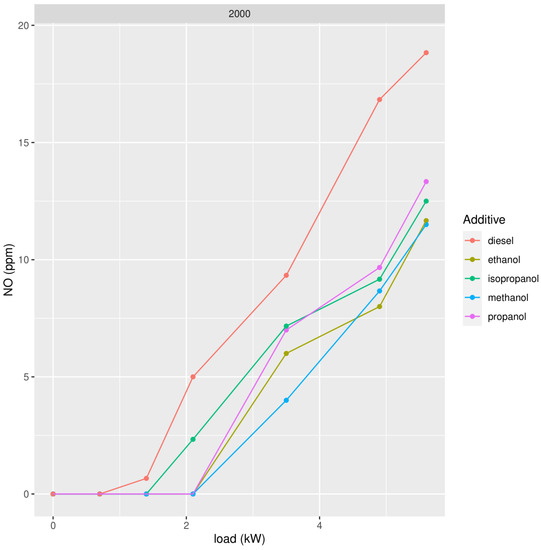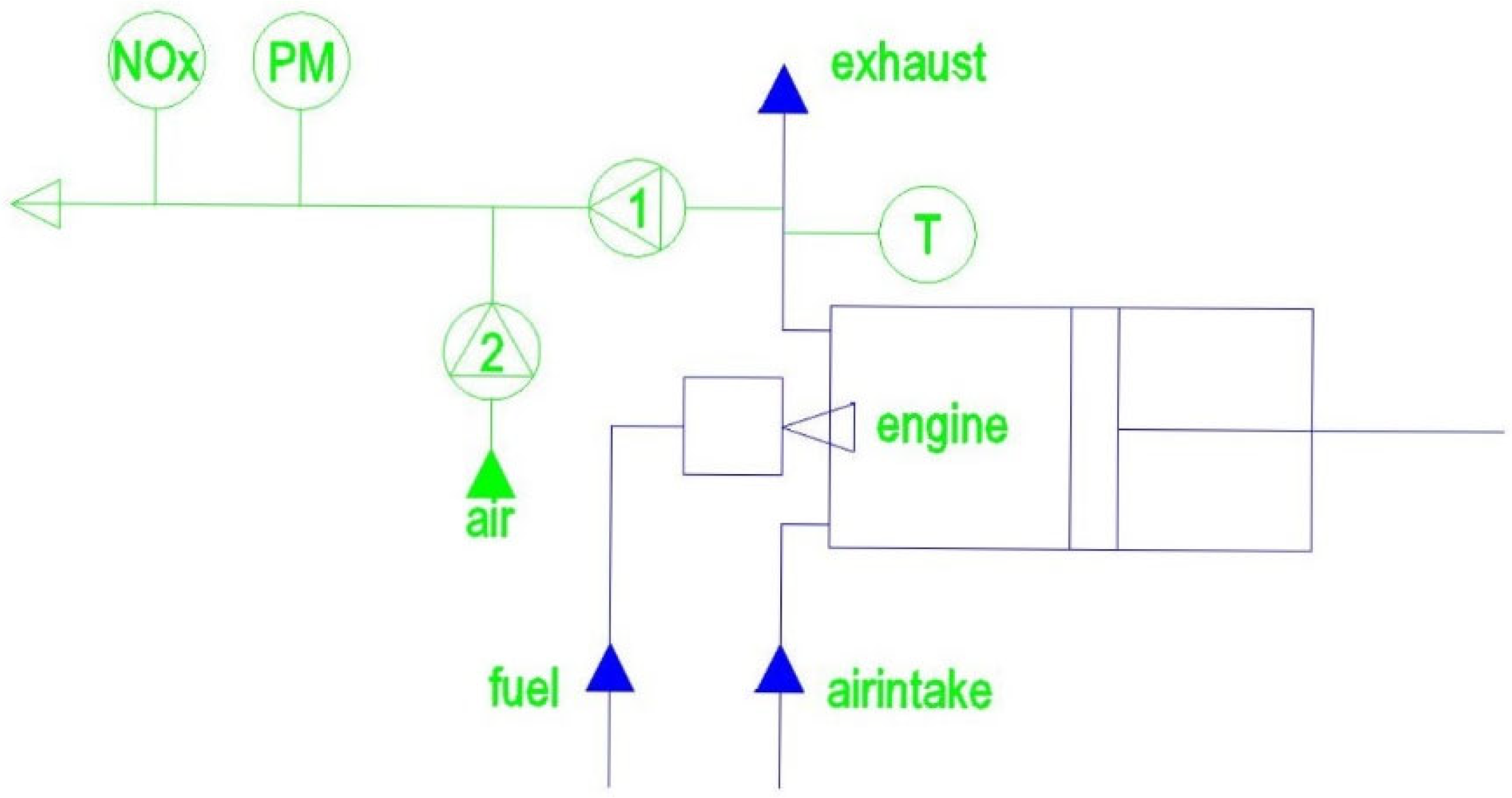Biodiesel B20 has 20% biodiesel mixed with diesel, reducing emissions and reliance on fossil fuels. Regular Diesel 2 is conventional diesel used in vehicles.
When comparing Biodiesel B20 vs. Diesel 2, consider the environmental impact, cost-effectiveness, and performance differences. Biodiesel B20 is a more sustainable option with lower greenhouse gas emissions, while Diesel 2 is widely available and may provide better fuel efficiency. Understanding the differences between the two fuels can help individuals and businesses make informed decisions that align with their values and objectives.
Let’s delve deeper into the specifics and benefits of each fuel type to guide your decision-making process.


Credit: www.star-telegram.com
Composition
Comparing Biodiesel B20 to Diesel 2 showcases environmental benefits and improved engine performance. Biodiesel offers a renewable and sustainable alternative to traditional diesel, reducing emissions and promoting a cleaner transportation industry. Making the switch to B20 can lead to long-term cost savings and a reduced carbon footprint.
Biodiesel B20 and Diesel 2 have distinct compositions that impact their performance and environmental benefits.Biodiesel B20 Composition
- 20% biodiesel
- 80% petroleum diesel
- Derived from renewable resources
- Contains fatty acid methyl esters
- Reduces greenhouse gas emissions
Diesel 2 Composition
- 100% petroleum diesel
- Derived from crude oil
- Contains sulfur and aromatic compounds
- Higher emission of particulate matter
- Less environmentally friendly compared to biodiesel
Environmental Impact
Comparing Biodiesel B20 and Diesel 2 reveals a significant difference in environmental impact. Biodiesel B20 reduces greenhouse gas emissions and dependence on fossil fuels, making it a more sustainable choice for a greener future. Switching to Biodiesel B20 can help lower carbon footprint and contribute to environmental conservation efforts.
Biodiesel B20 Environmental Benefits
Biodiesel B20 is a renewable fuel made from biological sources like plants and animal fats. It emits lower greenhouse gases and reduces global warming impact. This fuel decreases carbon monoxide emissions that contribute to air pollution. B20 helps in protecting the environment due to its natural origin.
Diesel 2 Environmental Impact
Diesel 2 has a higher carbon content compared to B20, leading to more significant emissions. It produces higher levels of particulate matter and nitrogen oxides, which are harmful pollutants. This fuel contributes significantly to air pollution and degradation of air quality.
Performance And Efficiency
The comparison between Biodiesel B20 and Diesel 2 in terms of performance and efficiency is crucial for individuals and businesses looking to make informed decisions about their fuel choices. We’ll delve into the details of Biodiesel B20 performance and the fuel efficiency of Diesel 2 to provide a comprehensive understanding of these two options.
Biodiesel B20 Performance
Biodiesel B20, which comprises 20% biodiesel and 80% conventional diesel, is known for its impressive performance characteristics. It has a higher cetane rating, which contributes to smoother engine operation and quicker ignition. The superior lubricity of Biodiesel B20 also helps minimize wear on engine components, leading to prolonged engine life. Furthermore, Biodiesel B20 exhibits a higher oxygen content, promoting efficient combustion and reducing harmful emissions. These performance attributes position Biodiesel B20 as a formidable alternative to traditional diesel fuel.
Fuel Efficiency Of Diesel 2
Diesel 2, the conventional diesel fuel, is recognized for its exceptional fuel efficiency. It provides high energy density, ensuring that it can cover more miles per gallon compared to other fuel alternatives. The combustion efficiency of Diesel 2 contributes to its impressive fuel economy, making it a preferred choice for long-haul transportation and heavy-duty applications. Additionally, Diesel 2’s stability and consistency make it a reliable option for various engines and operating conditions.

Credit: www.mdpi.com
Engine Compatibility
When it comes to choosing between biodiesel B20 and diesel 2, one important factor to consider is engine compatibility. Different engine types have different requirements, and it’s essential to know which type of fuel is suitable for your specific engine. In this section, we’ll discuss the compatibility of biodiesel B20 and diesel 2 with different engine types.
Compatibility With Biodiesel B20
Biodiesel B20 is a blend of 20% biodiesel and 80% petroleum diesel. This environmentally friendly fuel is made from renewable resources such as vegetable oils or animal fats. One of the key advantages of biodiesel B20 is its high compatibility with most diesel engines.
Biodiesel B20 can be used in diesel engines without any modifications. Its chemical properties are very similar to those of petroleum diesel, allowing it to work seamlessly with conventional engines. This means that you can easily switch from diesel 2 to biodiesel B20 without any concerns about engine compatibility.
Using biodiesel B20 not only reduces carbon emissions but also provides lubricating properties that can extend the life of your engine. It’s a clean-burning fuel that improves combustion and reduces harmful exhaust emissions, making it a greener alternative to traditional diesel.
Diesel 2 Engine Suitability
Diesel 2, also known as ultra-low sulfur diesel (ULSD), is a widely available fuel that meets strict emission standards. It has been specifically designed for modern diesel engines equipped with advanced emission control systems.
Diesel 2 is compatible with most diesel engines found in cars, trucks, and heavy machinery. It offers excellent performance, reliability, and fuel efficiency. However, it’s important to note that diesel 2 is not suitable for engines that require high blends of biodiesel such as B100.
If your engine is not compatible with biodiesel B20, diesel 2 remains a reliable option. It will still provide optimal performance while meeting emissions requirements. Diesel 2 is readily available and can be used without any modifications to your engine. It’s a tried and tested fuel that is commonly used in various industries.
| Fuel Type | Engine Compatibility |
|---|---|
| Biodiesel B20 | Compatible with most diesel engines |
| Diesel 2 | Compatible with most modern diesel engines |
In summary, both biodiesel B20 and diesel 2 offer excellent compatibility with most diesel engines. Biodiesel B20 can be seamlessly used in conventional engines without any modifications, providing a greener alternative. On the other hand, diesel 2 is specifically designed for modern engines with advanced emission control systems. Consider the specific requirements of your engine when choosing between these two fuels.
Cost Analysis
When considering the use of biodiesel B20 versus diesel 2, it is important to take into account the economic factors associated with each option. This cost analysis aims to provide insights into the economic considerations of biodiesel B20 and the cost of diesel 2.
Economic Considerations Of Biodiesel B20
Biodiesel, specifically the B20 blend, is derived from renewable sources such as vegetable oils, animal fats, or recycled cooking grease. One of the significant advantages of biodiesel is that it offers a more environmentally friendly alternative to traditional diesel fuel. Not only does it reduce carbon emissions and air pollution, but it also promotes sustainability and reduces dependence on fossil fuels.
From an economic standpoint, the cost of biodiesel B20 may vary depending on factors such as the region, availability of feedstocks, and production processes. While the initial cost of biodiesel may be slightly higher than that of diesel 2, the long-term benefits outweigh the initial investment. Biodiesel B20 has shown to improve engine performance and longevity, leading to potential cost savings in maintenance and repairs.
Additionally, the use of biodiesel B20 often qualifies for certain federal, state, or local incentives, grants, or tax credits. These incentives not only contribute to a reduction in the overall cost but also create a positive financial impact for businesses and individuals choosing to utilize biodiesel B20.
Cost Of Diesel 2
Diesel 2, on the other hand, is a conventional petroleum-based fuel commonly used in transportation and industrial sectors. It is readily available and widely used, making it a popular choice for many. However, the cost of diesel 2 is influenced by numerous factors including crude oil prices, distribution costs, and taxes.
At times, fluctuations in global oil markets can significantly impact the cost of diesel 2, making it unpredictable and subject to sudden price surges. This unpredictability can pose challenges for businesses reliant on diesel 2, especially when planning budgets or managing operational expenses.
Furthermore, the environmental impact of diesel 2 cannot be ignored. It contributes to air pollution and increases carbon emissions, leading to adverse health effects and environmental degradation. These factors have led to increased regulatory measures and potential future costs associated with emissions compliance.
Cost Analysis Summary
In summary, while the initial cost of biodiesel B20 may be higher compared to diesel 2, the long-term benefits, such as improved engine performance and reduced maintenance costs, coupled with potential incentives and environmental advantages, make biodiesel B20 a viable and cost-effective alternative. On the other hand, the fluctuating cost and environmental impact of diesel 2 present challenges and potential future expenses.
Market Trends
Adoption And Usage Of Biodiesel B20
Recent market trends indicate a notable increase in the adoption and usage of Biodiesel B20. As the demand for sustainable fuel options grows, businesses and consumers are turning to biodiesel to reduce environmental impact and comply with regulations. This trend is expected to continue as more industries and individuals prioritize eco-friendly alternatives.
Trends In Diesel 2 Usage
The usage of Diesel 2 continues to be prominent in various sectors, but there is an observable shift towards considering alternative fuel options. Factors such as environmental regulations and the quest for cleaner energy sources are influencing the trends in Diesel 2 usage. Businesses are exploring the potential of blending biodiesel to meet sustainability goals while maintaining efficient operations.

Credit: www.star-telegram.com
Frequently Asked Questions Of Biodiesel B20 Vs Diesel 2
What Is Biodiesel B20 And How Does It Differ From Diesel 2?
Biodiesel B20 is a blend of 20% biodiesel and 80% petroleum-based diesel fuel. It is a cleaner alternative to Diesel 2, as it produces fewer emissions and reduces dependence on fossil fuels. B20 can be used in existing diesel engines without modification, making it an attractive option for environmentally conscious individuals and businesses.
Does Biodiesel B20 Affect Engine Performance?
No, Biodiesel B20 does not negatively impact engine performance. In fact, it has properties that enhance lubricity and can lead to improved engine life. B20 also has a higher cetane rating than Diesel 2, resulting in a smoother and quieter engine operation.
So, you can enjoy the benefits of biodiesel without compromising on performance.
Is Biodiesel B20 More Expensive Than Diesel 2?
Yes, Biodiesel B20 is typically more expensive than Diesel 2 due to the cost of producing biodiesel. However, it’s important to consider the long-term environmental benefits and potential tax incentives associated with using biodiesel. Additionally, as the demand for biodiesel increases, economies of scale may drive down the cost, making it more affordable in the future.
Can Biodiesel B20 Be Used In All Diesel Engines?
Biodiesel B20 can be used in most diesel engines without any modification. However, it’s always recommended to check with your vehicle manufacturer to ensure compatibility. Some older diesel engines or specialized equipment may have specific requirements or restrictions when it comes to using biodiesel blends.
Consulting the manufacturer’s guidelines is always a good idea.
Conclusion
Both biodiesel B20 and diesel 2 have their pros and cons. While B20 is renewable and emits fewer pollutants, diesel 2 offers higher energy density. Your choice should align with your priorities and needs. Understanding the differences allows for a well-informed decision in selecting the fuel that best suits your requirements.